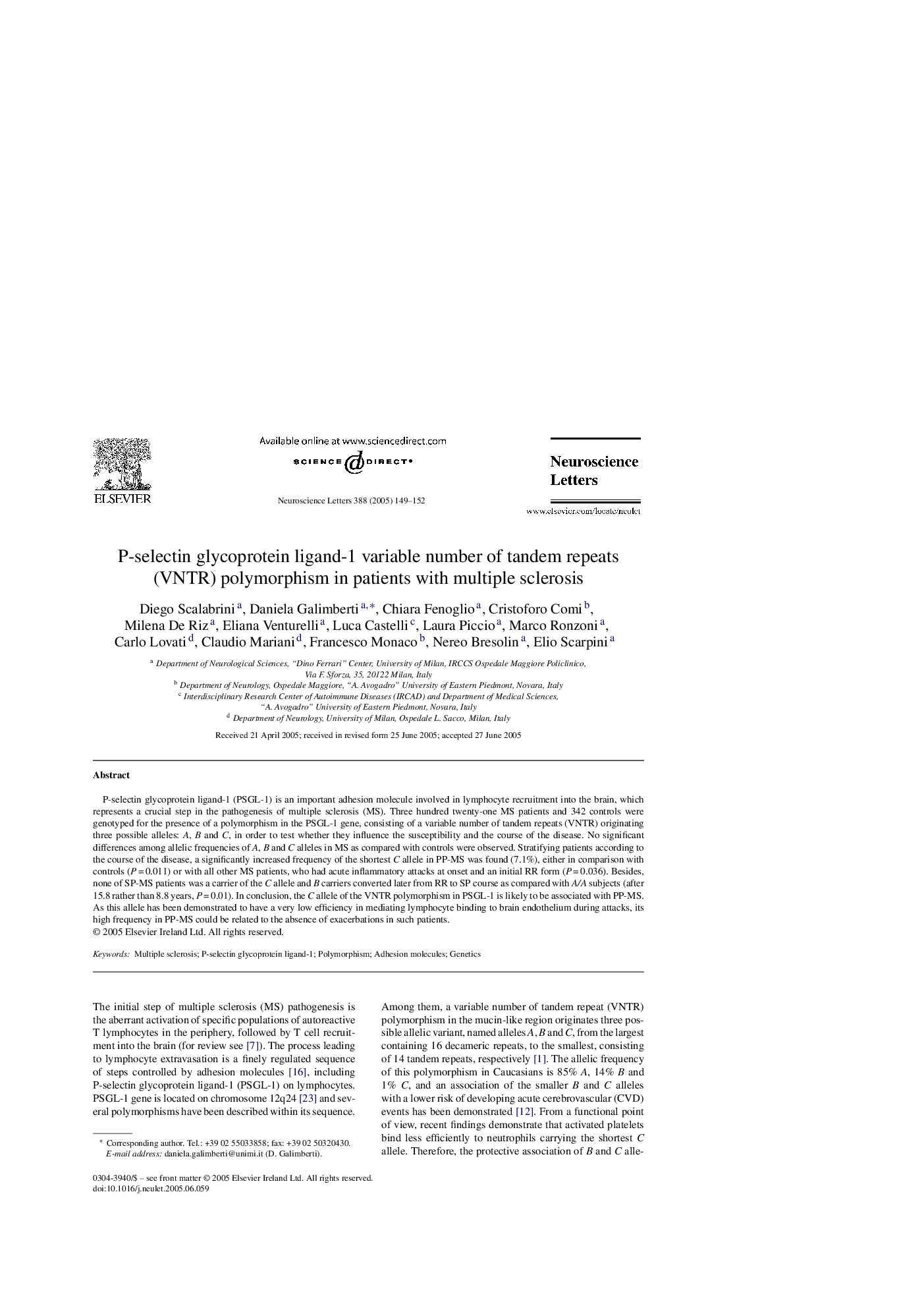| Article ID | Journal | Published Year | Pages | File Type |
|---|---|---|---|---|
| 9429002 | Neuroscience Letters | 2005 | 4 Pages |
Abstract
P-selectin glycoprotein ligand-1 (PSGL-1) is an important adhesion molecule involved in lymphocyte recruitment into the brain, which represents a crucial step in the pathogenesis of multiple sclerosis (MS). Three hundred twenty-one MS patients and 342 controls were genotyped for the presence of a polymorphism in the PSGL-1 gene, consisting of a variable number of tandem repeats (VNTR) originating three possible alleles: A, B and C, in order to test whether they influence the susceptibility and the course of the disease. No significant differences among allelic frequencies of A, B and C alleles in MS as compared with controls were observed. Stratifying patients according to the course of the disease, a significantly increased frequency of the shortest C allele in PP-MS was found (7.1%), either in comparison with controls (PÂ =Â 0.011) or with all other MS patients, who had acute inflammatory attacks at onset and an initial RR form (PÂ =Â 0.036). Besides, none of SP-MS patients was a carrier of the C allele and B carriers converted later from RR to SP course as compared with A/A subjects (after 15.8 rather than 8.8 years, PÂ =Â 0.01). In conclusion, the C allele of the VNTR polymorphism in PSGL-1 is likely to be associated with PP-MS. As this allele has been demonstrated to have a very low efficiency in mediating lymphocyte binding to brain endothelium during attacks, its high frequency in PP-MS could be related to the absence of exacerbations in such patients.
Related Topics
Life Sciences
Neuroscience
Neuroscience (General)
Authors
Diego Scalabrini, Daniela Galimberti, Chiara Fenoglio, Cristoforo Comi, Milena De Riz, Eliana Venturelli, Luca Castelli, Laura Piccio, Marco Ronzoni, Carlo Lovati, Claudio Mariani, Francesco Monaco, Nereo Bresolin, Elio Scarpini,
